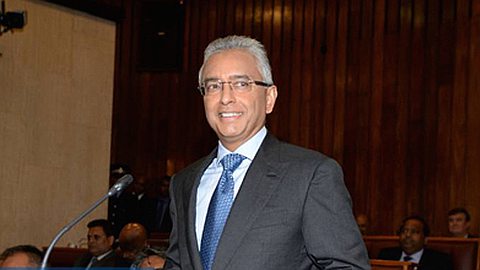Employment, a Priority of the Budget 2014

fSince 2009, under the influence of the global economic crisis, unemployment has climbed steadily. A development that concerns all observers. 7.3%, it rose to 8% last year and is expected to reach 8.3% this year. But the crisis is not solely responsible for this rise. The economy faces structural problems: the offer does not follow the request. Similarly, the education system does not meet the needs of businesses. As highlighted Pradeep Dursun, Acting Director General at the Mauritius Employers' Federation, our education system encourages this mismatch between supply and demand. " The school does not produce what the company wants , "says Pradeep Dursun. Worse, the vocational part was not sufficiently developed at school, he says: " There is no place for youth to the labor market is prepared, or at school or in the family. It shows them that the goal is to have a degree. However, a degree does not guarantee a job. Today the 'soft skills' are a fundamental value in recruitment. That part is not sufficiently developed in the school system. "
The result is an impossible situation, because if one of the major problems of unemployment is that a third of the unemployed are under-qualified - they do not have a School Certificate - now even graduates are unable to find a employment. The Finance Minister Xavier Duval, recognizes himself. He recently explained that " many of these graduates have probably chosen pathways that do not correspond to market needs and then have higher that companies demand qualifications. "
Moreover, one of the priorities of the 2014 Budget is to revitalize the labor market. Dev Manraj the new Financial Secretary, has recently brought confirmation.
The current environment is not conducive to the protection of existing jobs, according to some observers, and could even cause layoffs. The payment of salary compensation came undermine the already precarious situation on the labor market, recently pointed Arifat Vincent, President of the Mauritius Employers Federation. " If the economy improves and companies manage to pay compensation it will be fine, but for now we fear that there will be job losses , "he said.
The remedies of the IMF
The private sector will have to pay Rs 2.6 billion for the payment of salary compensation, which is a substantial amount. Vincent Arifat said fear of layoffs, particularly in small and medium-sized businesses that do not have the means at this juncture to pay compensation and may resort to layoffs in order not to increase the cost of their payroll.
However, there are solutions to the problem of unemployment. To address the mismatch between supply and demand, the International Monetary Fund recommends better align the curriculum to the realities of the job market. The IMF also insists that the system of wage compensation should be linked to improvements in productivity. " The only way to combat unemployment is to have a high and more than 4% growth rate. We need a 'pro-growth agenda. " If growth remains below 4%, it will automatically climb unemployment , "says his side Renganaden Padayachy, an economist at the Chamber of Commerce and Industry. It is also pessimistic about unemployment for this year, providing a rate of 8.6%, while Statistics Mauritius expects 8.3%. The IMF is a very similar scenario on the evolution of unemployment until 2017.
If the country is able to achieve an average growth of 4.1% over the next three years, the unemployment rate is expected to decline by 1% to 7% over the next five years. " An unemployment rate of 6% by 2017 born cessiterait a 5% growth , "the IMF said in a staff report for Article IV Consultation , which is slightly higher than the estimates of the institution that provides a rate of potential economic growth of 4.5%. We can then consider the relevance of the target announced by the authorities to an unemployment rate of 5% in ten years. If some outline a smile at such optimism, the economist Yusuf Ismail, for its part, that such an ambitious goal can only be achieved if there is an educational reform and development of vocational training in the country.
Pradeep Dursun suggests, meanwhile, we encourage the professionalization of various businesses by introducing the CAP (Certificate of professional competence) as is the case in France, for example.
" The CAP is the minimum base. At the same time it will promote more business in the areas of food, sales, etc.. "said Pradeep Dursun which also warns against the danger of structural unemployment. A factor retarding the economy can not afford. The head of the MEF also suggests the introduction of a Youth Rate in business: " The Youth Rate could, for example, involve young people aged 16 to 25 years. This is lower than adult wages, and serves as an incentive for businesses to employ young people. It is a worthwhile project for youth to enable them to more easily find a job and allows parallel organizations to reduce their costs. "
At the MEF, it seems more and more convinced that the solution to unemployment will rise by the ability of our economy to create jobs for young people.
The specter of job losses
For the economist Yusuf Ismail, a real problem that contributes to unemployment in Mauritius is that some refuse to work for low wages. The problem of low wages in certain sectors is more serious than that of unemployment, said Yusuf Ismail: "We have many unemployed because some have chosen not to work. Others prefer to turn to the informal sector. " In addition, the economist points out that unemployment can only increase when private investment decline. It also notes that the government creates jobs for foreigners, including Chinese laborers on construction sites and not for Mauritians. Yusuf Ismail expects job losses in the coming months in the construction industry and other sectors.





